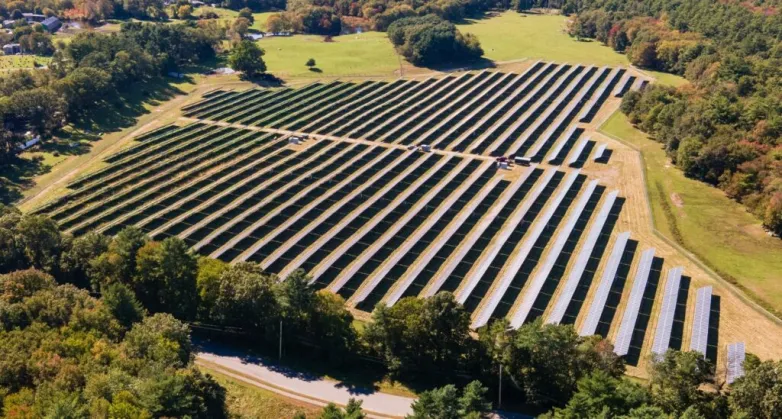Syncarpha in US$ 100 million New England solar-plus-storage collaboration
- Private equity firm Syncarpha Capital has entered a partnership to co-develop solar as well as solar-plus-storage projects in New England, US, with Rosemawr Sustainable Infrastructure Management.

Syncarpha establishes, possesses and also operates clean energy assets and also is mostly concentrated on community solar PV and also dispersed generation projects like commercial rooftop solar.
It has additionally been establishing solar-plus-storage projects in Massachusetts for the last number of years with a collaboration with energy storage space tech firm Stem as well as one more with a subsidiary of European energy major ENGIE.
The business stated on Monday that its collaboration with Rosemawr Sustainable Infrastructure Management, the sustainable infrastructure financial investment arm of investment company Rosemawr Management, will put a first US$ 100 million right into project growth.
Projects covered will certainly consist of community solar, distributed generation solar as well as solar-plus-storage. Shared community solar and energy storage infrastructure delivers critical support to the grid and also lasting power financial savings for clients, Syncarpha Capital CEO Cliff Chapman said.
Rosemawr Sustainable Infrastructure Management taking care of partner Josh Herlands described Syncarpha as a "a historical, tried and tested project developer, sponsor, and also driver with industry-leading know-how in shared community solar projects, consisting of customer purchase and also management".
Syncarpha currently has and also runs over 150MW of solar in 10 US states.
Strong value recommendation in Massachusetts, ISO New England area
In terms of solar-plus-storage, Massachusetts remains the huge chance within New England states due mainly to the state's clean energy policies, which have actually driven a wave of solar PV with battery power storage systems (BESS) normally in the 5MWh to 20MWh range.
Vehicle drivers consist of market structures for 2 distinct revenue streams, the Clean Peak Standard and also Solar Massachusetts Renewable Target (SMART).
SMART pays incentives using energies to projects that add dispatchable solar PV capacity to the energy mix, while the Clean Peak Standard mandates that a specific quantity of energy on the grid at peak times should originate from reduced carbon sources.
In a recent feature article on the US solar-plus-storage area for our quarterly journal PV Tech Power, a number of industry commentators discussed the value suggestion in the Massachusetts market. Mary Cauwels, VP of product marketing for Syncarpha's partner business Stem, provided an outbreak of normal revenues connected with solar-plus-storage in Massachusetts.
Just over a 3rd of revenues (34%) come from the power market, Cauwels stated, in addition to 27% from forward capacity markets, 15% from real-time gets, 12% via the Clean Peak Standard and also concerning 12% from frequency policy.
One more participant in interviews for that item, Mark Frigo, VP for energy storage at renewables developer Nexamp, discussed that together with Clean Peak as well as SMART payments, the area's grid and wholesale market driver ISO New England approves storage space as a capacity resource as well as frequency regulation asset. Massachusetts in particular is in a handful of leading US states together with The golden state and New York to incentivise the development of clean power and also connected power storage, Frigo stated.
Nonetheless, looking at the United States federally, Frigo additionally noted that solar-plus-storage assets are eligible for assistance using the financial investment tax obligation credit rating (ITC). While standalone battery storage isn't eligible for the ITC, batteries coupled with solar are, as long as they charge directly from the solar for 75% of the year or more.
In the wider New England region, the majority of those opportunities can still be tapped, with ISO New England among the forefront of US regional operators to upgrade market frameworks to accommodate energy storage space-- consisting of changing policies ahead of implementation of FERC Order 2222 and also FERC Order 841, by which federal regulatory authority FERC ordered local transmission organisations (RTOs) and also independent system operators (ISOs) to permit behind-the-meter battery storage space and also other dispersed power resources (DERs) to get involved freely in wholesale markets.
While in 2018 Massachusetts became one of the first US states to adopt an energy storage space target of 1,000 MWh by 2025, fellow New England mentions Connecticut and Maine likewise established state targets for energy storage space implementation just over a year back. Rhode Island recently established the United States' most aggressive state-level clean energy target policy, aiming to fulfill 100% of all electricity sales with renewables by 2033.
Also read

